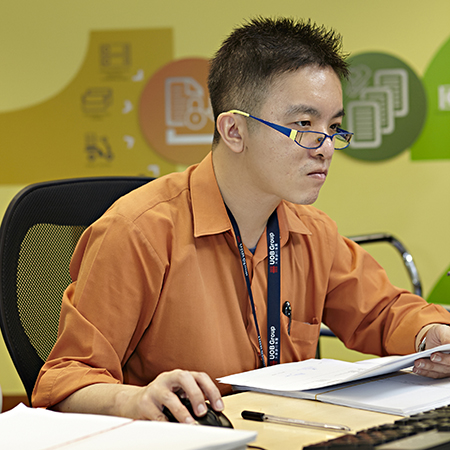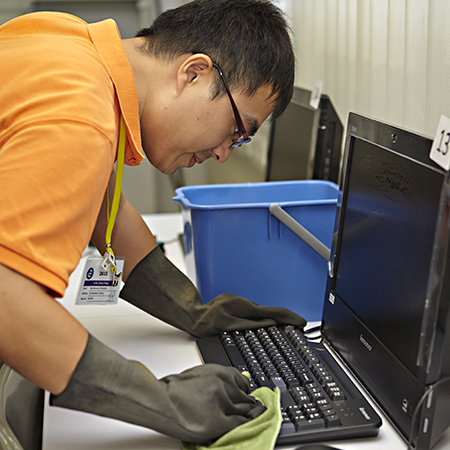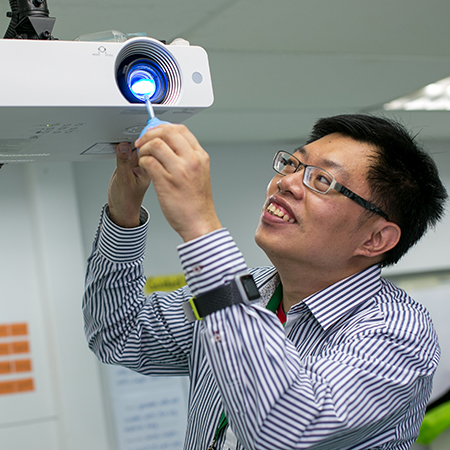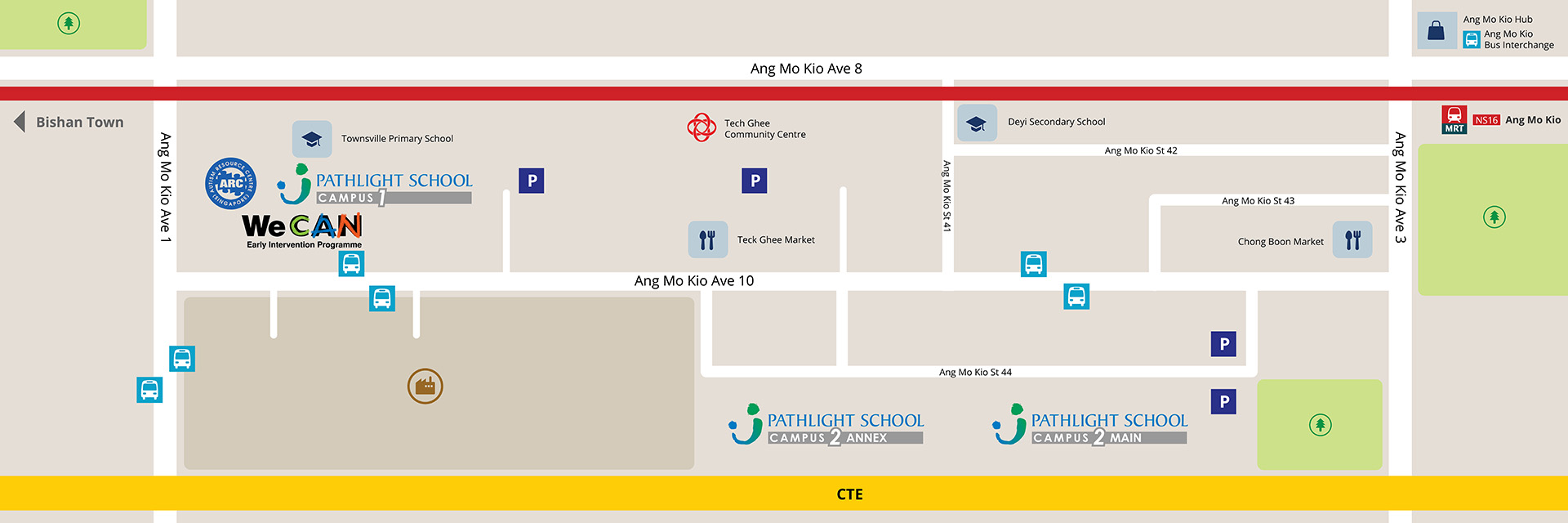E2C's Mission
E2C aims to equip adults with autism with employability skills through training and place them in suitable jobs with appropriate job support.
Introduction
The Employability and Employment Centre (E2C) is the first autism-focused centre that offers services to enable people with autism to perform successfully in the workplace. It also offers services for employers who are interested in hiring people with autism in their companies.
It has been proven that with the right training, placement, and support, people with autism can work and be productive.
With training and support from E2C, people with autism can:
- Find employment and thrive in areas that match their strengths and interests.
- Earn a monthly salary and contribute to society.
- Have access to training and support by job coaches who can coach them in the skills that match their learning style and are meaningful to them
Contact Us
Introduction to E2C Programme
Our Programme
Clients coming into the E2C programme will go through a structured 5-stage process which enables us to assess their suitability. The programme builds on the clients’ strengths and interests and identifies learning needs to help us match them to a suitable job. With the training and support provided in our programme, we increase the potential for clients to be successfully employed.
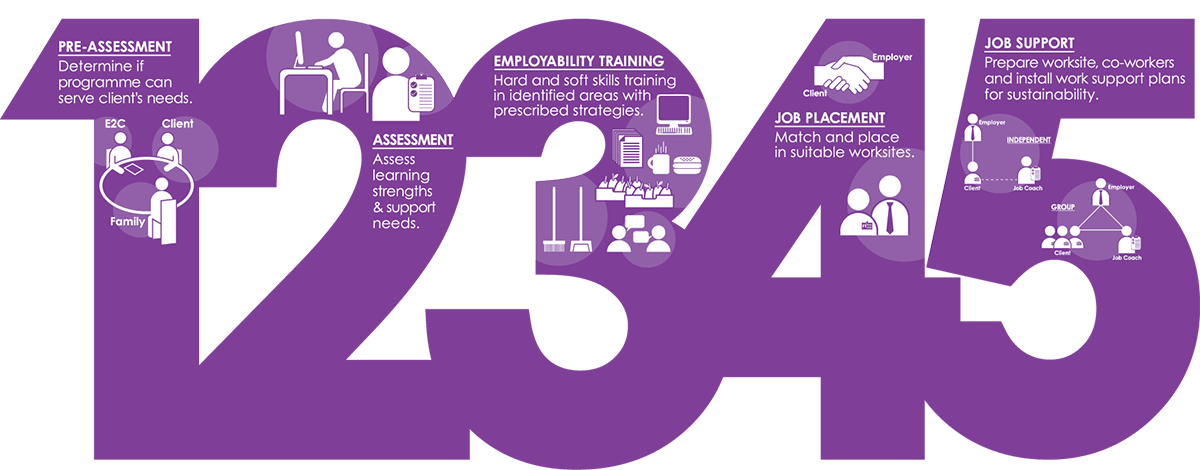
1
Pre-assessment
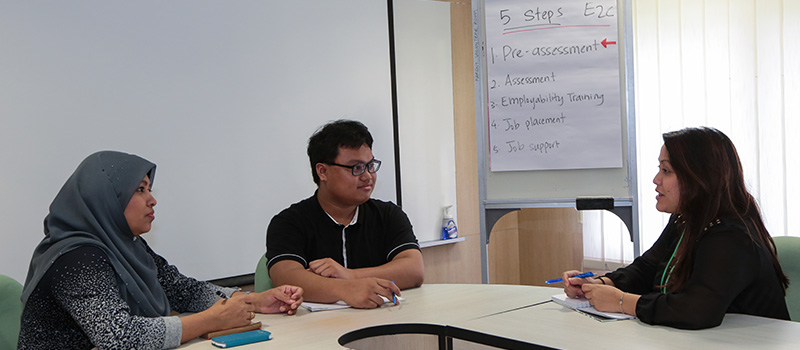
The first step is to meet with an E2C case manager, who will share more about the E2C programme and answer any questions. This will help determine if the programme is suitable for you (the client) or your child/ward with autism. If it is found to be a good match, an appointment will be made for an in-depth assessment.
Both client and parent(s)/guardian(s) must be present for this meeting.
2
Assessment

Our E2C case manager will guide the client through a series of assessments to determine each client’s unique strengths, interests and learning needs. These assessments are customised for each individual, and include direct 1:1 assessments, assessments in authentic worksites, and interest surveys. Information will also be gathered from other parties who are close to the client, such as the family, schools, medical health professionals and past employers. This information will be treated as confidential and used strictly in the interests of the client.
E2C takes into account both “hard skills” and “soft skills” in these assessments.
- “Hard skills” refer to knowledge and techniques that are used on-the-job, like computer skills, or baking, or cleaning.
- “Soft skills” are equally important, and refer to more personal skills like communication and interpersonal skills, grooming and dressing, focus, stamina and speed.
Our case manager will share some of his/her findings and recommendations in the post-assessment debrief. He/She will recommend the key hard and soft skills areas where training is needed, appropriate strategies to and structures to teach the client, as well as suitable training areas with the highest chances of success. The family will also receive a summary report.
In the course of E2C’s assessment, we may seek more information about the client from parties such as family, schools, medical health professionals and past employers.
3
Training

The client will begin vocational training in areas that are best suited to his or her strengths, interests and needs. These areas will be identified beforehand, and mutually agreed upon, based on the outcomes of E2C’s assessment.
E2C job coaches use autism-friendly strategies to train the client in both hard and soft skills. The length of the training depends on the progress of the client in the key skills identified.
The client will proceed to job placement when he or she has reached the necessary levels of skills and independence.
The training of individual clients may take between 10 – 40 weeks before they are recommended for job placement. However, the duration of training varies according to the individual’s level of skills and the need for support.
4
Placement

Clients will be matched to jobs when they are ready for work. Job coaches will be there to support and guide the client at every step of the employment process: from the application and interview stages, to the explanation of the company’s policies and the signing of the contract.
E2C will also engage the client’s supervisors and colleagues on how to work together with the client.
5
Support

Our E2C job coaches will provide on-site support at the client’s workplace. Their role is to coach the client in meeting the expectations of the job, and to act as an advocate and intermediary between the client and his or her colleagues.
The level of support provided by the job coach will vary depending on the client’s needs. E2C is committed to providing the client with the long-term support that he or she needs to maintain employment.
Sign up for E2C Programme
The purpose of the Client Request Form is to allow us to have a better understanding about the client’s situation and assess his/her suitability in obtaining Employability & Employment Centre (E2C) services. However, the submission of this form does not constitute an admission to E2C services. Admission to E2C services will be subjected to the outcome of the Pre-Assessment.
Client Request Form
The eligibility criteria of the client are as follows:
- Singapore Citizen or Singapore Permanent Resident
- Aged 16 and above
- Has a primary diagnosis of Autism
- Is not currently enrolled in another SPED school / programme
For Employers

People with autism have their own niches and preferences for certain types of jobs, which can be matched to employment opportunities. Some of the most common jobs are cleaning, F&B, stocking, and office work. However, there are other jobs that people with autism can perform. Many people with autism also have special talents in areas such as art, music, computing, and Maths.
With training and support, employers of people with autism can:
- Gain employees who are focused on getting the job done according to the standards stated by your company.
- Gain employees who enjoy and do well in aspects of the job that others consider “repetitive” or “boring”.
- Gain employees who are loyal to the company, as people with autism are more likely to stay on a job once they are comfortable and know what to expect from the work and social environment.
- routine tasks (both basic or complex)
- tasks where attention to detail and accuracy is required (e.g. research work, data entry, word processing)
- tasks where there is a clear procedure to follow (e.g. sorting incoming and outgoing mails, filing, archiving, library work, baking, or packing)
- highly structured tasks with a right and a wrong way of doing something (e.g. software testing, data entry)
- tasks involving numbers and facts (e.g. maintaining accounting ledgers, cataloguing)
We assign well-qualified job coaches to assist your employee at NO cost to employer. Our coaches will:
- Learn the job duties herself/himself and assist in teaching them to the employee.
- Ensure that your job requirements are met (quality, quantity, safety, time limits, etc.)
- Teach your employee the rules and policies.
- Support employee in gaining social acceptance among his/her coworkers.
- As needed, educate managers and coworkers about autism.
- As needed, act as mediator for you, coworkers, the employee, and their families.
- Phase out as your employee gains independence over time.
- Have a reliable workforce (especially when the work is routine)
- Be a model of social inclusion
- Have job training and support provided by E2C at no extra cost to the employer
- Qualify for the Special Employment Credit (SEC)
- E2C can tap on the Open Door Fund (ODF) which provides financial support to employers to redesign jobs, modify workplaces and/or train their special needs employees
Client Testimonials
After a successful job matching, our clients are often kind enough to share some feedback on our working relationship. Here are a few appreciated remarks.
My case managers and coaches are patient with me and they are able to understand what I want to express. They show me how to carry out my tasks without being too harsh or critical. I enjoyed coming to work because it feels like a new phase of my life has begun, and I have this strong urge to learn as much as possible.
Marcus
has been working at Starbucks as a Barista.
I do not need to rely on my parents for pocket money as I have an income now.
Andrew Tham
as been working at MOHH.
At the workplace, my co-workers/supervisors help support me by helping me when I am not sure. For this year, I have set the goal of trying to do more credit card scanning, try different set of account type with high productivity.
Wei Qun
has been working at UOB.
I am able to understand after my coaches have briefed me with necessary information about my work. It will be simple for me to understand properly when I have many visual instructions in the file as reference, especially the notes which I have written down with my coach.
Chris
has been working at UOB.
My coach helps provide step-by-step visuals for me. She also practises with me during training with clear instructions. At Starbucks, the co-workers and supervisor correct and remind me of my negative behaviour. I feel that it is helpful to me.
Li Rui
has been working at Starbucks.
Being able to come to work allows me a sense of “normality” and financial independence. It is meaningful as by helping the teachers with the job of educating special needs students in science. They deserve to be science literate just like the rest of us.
Sin Wei
has been working at Pathlight School as a Science Lab Assistant.
I buy food and drinks with my salary. I save the extra remaining money. I do not need to take money from my parents anymore because I am earning my own money.
Christopher
has been working as a Pathlight School Cleaning Crew.
At the workplace, my supervisors and co-workers have birthday celebrations and special occasions that we celebrate together, eat good food and also to interact with one another. Every year we have celebration at Christmas and that time during Christmas, I became Santa Claus ... and there were lots of presents and food.
Zen
has been working at UOB.
The E2C coaches are friendly and support me by showing me the steps. They practise with me and guide me to follow visuals. I feel motivated to come to work because I get to receive salary every month.
Hardy
has been working at Starbucks.
For my job, I ensure all IT equipment are maintained and any breakdown rectified as soon as possible. I also help to check and maintain stock of printer toners. This makes end users satisfied and happy. This makes me happy too.
Hian Koon
has been working at Pathlight School.
The E2C services are helpful as my case manager not only helped identify specific job options, but also negotiated terms on my behalf, helped spread autism awareness to my workplace supervisors, and gave helpful advice about sundry job-related issues.
Kuan Min
has been working at MOHH.
Our Team
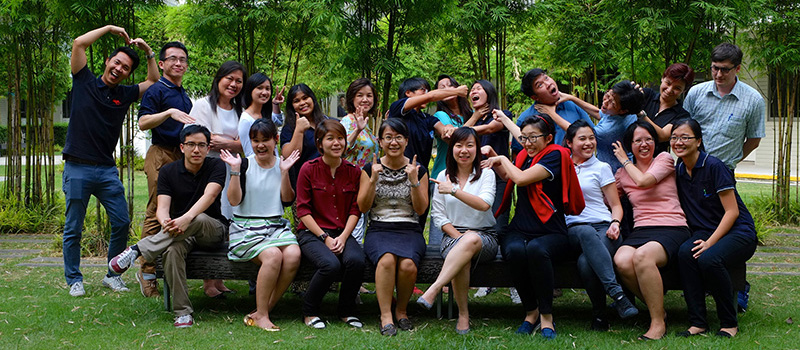
"Different but not less." Quote by Temple Grandin
 Yeok Lin
Yeok Lin
Seek to understand.
 Jelita
Jelita
I don't have a dis-ability, I have a different-ability... It means I may have to take a slightly different path than you." Quote by Robert M. Hensel
 Ean
Ean
Everyone has his/her own potential. Given the right guidance, people with autism can also soar high.
 Joycelyn
Joycelyn
Autism is like a rainbow.
 Clarice
Clarice
"What would happen if the autism gene was eliminated from the gene pool? You would have a bunch of people standing around in a cave, chatting and socializing and not getting anything done." Quote by Temple Grandin
 Wei Yang
Wei Yang
Remember the time when somebody gave you a life-changing chance? These guys with autism need that too. If we don't give them these opportunities, who will?
 Anhong
Anhong
Every ASD individual is asperlutely autsome in their own unique way!
 Green
Green
"Do not judge me because I am different to you, I do not judge you for being different to me." Quote by Tina J. Richardson
 Lizhen
Lizhen
While we try to teach our children all about life, our children teach us what life is all about.
 Micky
Micky
"If they can't learn the way we teach, we teach the way they learn." Quote by O. Ivar Lovaas
 Joyce
Joyce
If given the opportunity for people with autism to spread their wings, they too, can take flight with the sky as their limit.
 Sheena
Sheena
Every person with autism can contribute.
 Ike
Ike
Life is not just about what you are doing for others. But what others are doing for you. Being able to see, how a client with autism has progressed from learning the skills you have been teaching, then to being hired in a job to do those skills, is something you don’t ever want to miss. The differences you have made, can be multiplied by so much, when you experience this yourself.
 Kay
Kay
Walking with the special ones.
 Adrian
Adrian
Mahatma Ghandi: "Strength does not come from physical capacity. It comes from an indomitable will."
 Dorothy
Dorothy











